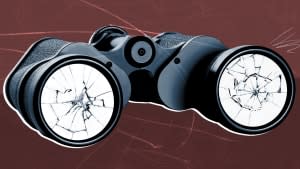The polls don't work — and that's a good thing

The polls in the 2020 election were wrong, bigly. That's according to a postmortem report issued by the American Association of Public Opinion Research (AAPOR). After reviewing nearly 3,000 surveys, researchers found that national polls overestimated Joe Biden's support by an average of 3.9 percent, while state polls were off by 4.3 percent. These errors of "unusual magnitude" were the biggest miss since 1980, when polls understated Ronald Reagan's support by eight points.
The report takes the problem more seriously than more defensive responses from within the polling industry. It also admits that scholars still don't understand what went wrong.
Immediately after the election, some pollsters speculated that "shy Trump voters" who falsely reported supporting Biden might have skewed their results. The report finds little evidence for this hypothesis. Instead, it suggests many Republican voters did not respond to surveys at all, leading to unrepresentative samples of the electorate.
Trump voters' resistance to polling is consistent with evidence that they had lower trust in social institutions. It could also be a consequence of Trump's campaign against "fake news." Whatever the cause, polling doesn't work when refusal to participate in polls is strongly correlated with candidate or party preference. You can't find out what the people think when half of them won't share their opinions.
The diminishing reliability of polls is bad news for campaign journalists and political consultants, but it's good news for the rest of us. Uncertainty about polls could liberate unconventional candidates to pursue ostensibly unpopular positions and novel strategies. It might also encourage turnout by keeping voters' hopes for improbable victory alive. Facing the risk of massive error, even candidates who are heavily favored can't take their core supporters for granted.
Best of all, the polling failures in 2020 (and 2016) help dispel the illusion that politics is a predictive science best practiced by highly-trained technicians. Quantitative data have a role in predicting electoral outcomes. But they don't replace historical understanding, local knowledge, and sheer intuition. Candidates and advisors who have these virtues are more important than sophisticated statistical instruments. As the saying goes, there's only one poll that matters: the one on election day.
You may also like
Fox News host Tucker Carlson seems scandalized reporters are investigating his NSA spying claims
Doctors unlikely to persuade COVID-19 vaccine hesitant, poll finds
Jan. 6 defendant sentenced to 8 months after hearing that could set benchmark for similar cases
